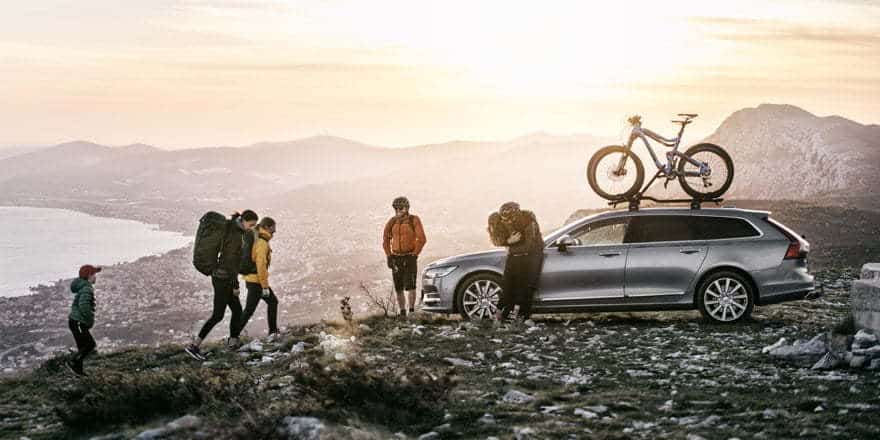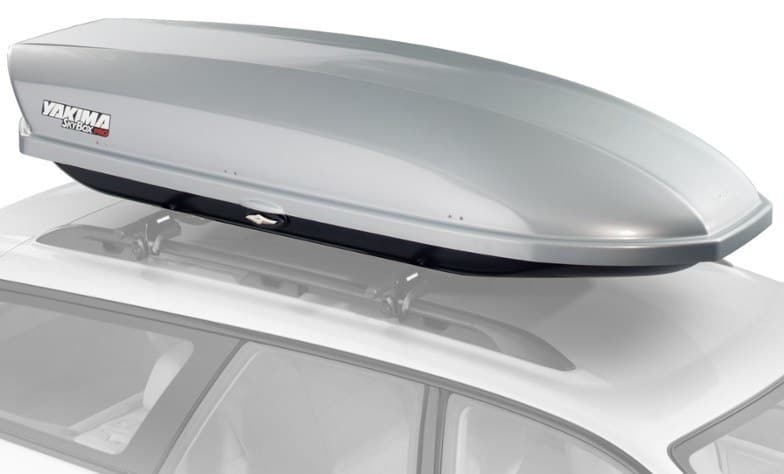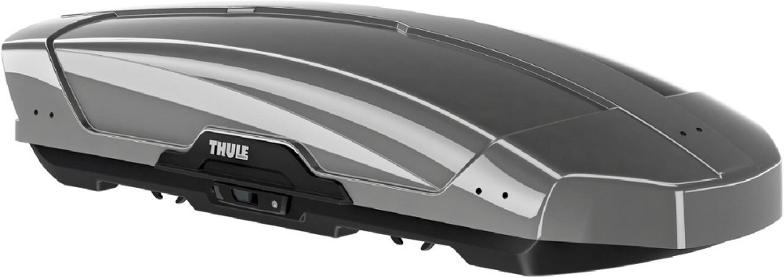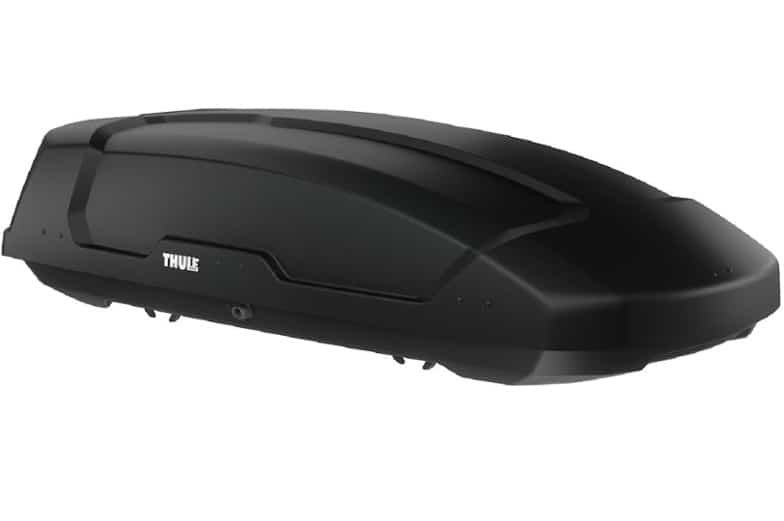Carrying all of your essential accessories and other items while on the go can be a bit challenging. This challenge is increased for those outdoor lovers who go on regular road trips, camping expeditions, and explorations in nature as there are not many solutions designed specifically for carrying large amounts of cargo or other related camping equipment.
However, due to the limited amount of adequate storage options available, the companies who do manufacture cargo boxes that allow you to carry and store large items have become masters at their craft and abilities.
Rooftop cargo boxes are great because they allow you to inconspicuously store all of the most valuable items that you have and need for your outdoor explorations journeys with ease and security.
Table of Contents
Main Differences Between Thule vs Yakima Cargo Box
The main differences between Thule vs Yakima Cargo Box are:
- Thule has a very secure lock system, whereas the Yakima Cargo Box is very easy to install.
- Thule is highly resistant to any kind of weather, whereas Yakima Cargo Box are not as water-resistant.
- Thule has the best weight capacity, whereas the Yakima Cargo Box uses a very special carbon fiber-like material.
Since there are not that many rooftop cargo box options available on the market, your choices are quite limited and there are some core factors that you’ll want to consider before making your final decision. These factors relate to things that revolve around the overall construction and build quality of the cargo storage box, how well it fits on your vehicle, and how it operates just to name a few.
Before deciding on which rooftop cargo box will fit your needs best, you will want to consider all of these variables to ensure that you’re making the right decision for your particular needs.
Two of the main companies that produce high-quality rooftop cargo box options are Thule and Yakima, both of these companies have established themselves as dominating forces in this niche industry, and for good reason.
Both companies manufacture premium rooftop cargo box options (including cargo basket selections) that are compatible with a wide range of different vehicle types and models. Chances are that If you plan on purchasing a cargo box for your vehicle anytime soon, you’ll likely buy from one of these companies.
Whilst it may seem like an easy task to do so given the relatively low amount of options available for you to choose from, you will want to pay very close attention to all of the design specifications for the desired cargo box you’re interested in before buying.
In this guide, we’re going to go in-depth about all of the important factors, features, and elements that you should consider when buying a rooftop cargo box. Make sure you read this guide in its entirety so that you can ensure you’re making an educated purchase that will provide the amount of storage space and functionality that you want.
To begin, let’s take a look at the history behind both of these brands so that you can get an up-close view about how they became the leaders in an industry that they are today.
Our Top Roof Rack Cargo Carrier Recommendation
Thule Pulse L Rack
Durable and rugged textured ABS material is long-lasting and helps protects contents during transit. Fast and secure fitting using only one hand due to fast grip quick-mount system that assembles in moments.
The Thule Pulse L Rack is outfitted with a rugged and durable outer layer roof rack made from textured ABS reinforced plastic which doesn’t add too much weight in lbs to the roof of your car while also ensuring that all of your stored items are safe and protected, all with excellent carrying capacity.
The box comes with a quick-mount system which allows you to easily install the box using one hand safely and securely. The box also gives you the ability to access your items from the passenger side of your vehicle for added functionality and ease of use.
This box comes with a central locking system that provides a full-range of protection for all of the items inside of the unit. It also has a grip-friendly Thule comfort key which can only be removed once all f the locking pins have been closed. This ensures a tight and secure storage spot that you can be confident in.
This box comes in three main storage configurations being 11 cubic feet, 15 cubic feet, and 16 cubic feet allowing you to get ample amounts of storage space no matter what items you may be hauling.
History Behind the Company: Thule & Yakima
As you might expect, both companies have a really rich history in the industry of cargo boxes that goes back centuries. While the history of these companies will not impact you in terms of your purchasing decision, the traits and qualities upon which they were founded are translated through every cargo box that the design and production.
In the following section, we’re going to go over a brief history behind both of these brands to help you gain a clearer picture of why they are so trusted by many vehicle owners today.
Thule 
Thule is a Swedish company that was started in 1942 with a focus on providing consumers with high-quality outdoor and active lifestyle accessories. When the company first began, they had a rather small market sector in which they targeted for their line of products.
Now, Thule has over 2,000 employees and is still based in Sweden today Malmo to be specific. The company is one that holds a strong belief in quality products that benefit their customers as opposed to being strictly focused on profit margins.
These core values are still reflected through the material composition of the luggage and hauling items they produce. Thule respects its customer base in a way that breeds brand loyalty in anyone who purchases its products once.
Yakima 
Yakima was created in 1973 by Otto and Jeanne Lagervail, Otto was an inventor who had a vision for creating premium quality activewear accessories that people can rely on and trust. His first notable invention was a metal music stand that had foldable capabilities which were really innovative during that time period.
The first-ever product released by the company was the famous Gold Rush Bar and it was released under Yakima Industries’ which was located in Yakima, Washington until 2005 when the company moved its headquarters to Oregon and California.
In 1995, Yakima released its first commercial active lifestyle product which was the SteelHead fork bike mount (compatible with many bike racks and roof rack models) which was also very innovative during the time, at least for bike owners. To this day, Yakima still maintains its unwavering dedication to producing high-quality active accessories that are long-lasting.
Now that we’ve gone over a brief summary about the history behind both of these brands, it’s time to look at some of the main differences between the line of products that they both offer.
Thule vs Yakima Box: In-depth Comparison
When you begin shopping for the right rooftop cargo box, you will notice that there are some key differences between all the products that both of these companies offer.
In the following section, we’re going to cover all of the important differences between both of these active accessory brands so that you can ensure you’re making the right purchase decision. Make sure you read this entire section in full so that you will know the key factors and features to look for when deciding on which rooftop cargo box will best suit your needs.
|
Thule |
Yakima Cargo |
|
|
These factors will play a major role in the amount of practical value that a cargo box from either brand will provide for your intended use. That’s why it’s important for you to become educated about all of the various aspects you’ll have to face when trying to find the right cargo box for your camping, traveling, or exploration needs.
Now, let’s take a core look at the specifications of the roof rack products produced by each brand so that you can see which one lines up with your preferred cargo-hauling style the best.
Core Specifications: Thule Vs. Yakima 
Both of these companies produce high-quality cargo boxes that allow you to haul and store an array of different items which you will need wherever you decide to travel. At the core of these brands, there are unique materials and manufacturing techniques used which provide distinctive sleek design advantages and functional use purposes to all of their products.
To help you better understand these major differences, this section is dedicated to breaking down the integral design features and benefits that you can expect when purchasing a cargo box from either brand.
Core Specifications: Thule
Thule makes durable rooftop cargo boxes that use 80% recycled materials and lightweight construction to deliver lasting performance and functionality to their users. Depending on which cargo carrier variant that you purchase, the materials used will vary and this is done to provide targeted benefits and design advantages that will benefit niche enthusiasts who have very specific needs.
One of the most widely used materials in the construction and building of Thule cargo boxes is thermoformed ABS plastic which is very durable yet lightweight and provides a solid composite material that doesn’t add too much weight to the roof of your vehicle.
These boxes are also impact-resistance and waterproof which ensure that all of your important cargo items are protected no matter what climate or environment you may happen to traverse. The finish and design shape also vary between all of the Thule boxes available on the market. This aids in the process of aerodynamics and overall ease of portability which are all very important factors when selecting a rooftop cargo box.
These cargo carriers have a very high maximum weight capacity which means that you’ll be able to carry all of the accessories and items you need most without worrying about weight impacting your overall mobility or performance.
Core Specifications: Yakima 
Yakima produces high-quality damage-resistant and weatherproof cargo carriers that are a lot easier to install on your vehicle roof when compared to competitors.
The company uses a very special carbon fiber-like material in the construction of all their cargo box options which ensure that you won’t have to worry about accidents or casual mishaps running the functionality of your cargo carrier. These rooftop cargo boxes are also made from approximately 80% recycled materials which are great for those concerned about the environmental impact of material manufacturing.
The company also puts an emphasis on rugged construction and practicality which ensures that your selected cargo box will stand up to virtually anything that you put it up against. If you’re looking for a rugged and durable rooftop cargo box, this company has the perfect option for all of your needs and intended use purposes.
Now that we’ve covered all of the core manufacturing and production specifications that you will see when choosing between both of these brands, it’s time to look at some of the key elements that you need to take into consideration before making your final purchase decision to ensure that you’re making the right choice.
Key Elements to Look for When Choosing the Right Rooftop Cargo Box
Deciding on what rooftop cargo carrier is perfect for your specific needs can be quite challenging due to all of the various factors and elements that you must consider. For those that are interested in purchasing a rooftop cargo box that will last for a long time, you will want to read this entire section in full.
Below, we’re going to go over some of the most important factors that you need to consider when selecting the right rooftop cargo carrier for your car.
Aerodynamics
When you install any sort of third-party accessory on your vehicle, it will impact the overall fuel efficiency and aerodynamics of your car. The reduction in aerodynamic properties once you install a rooftop cargo box is called drag, it basically means the amount of speed reduction that your car undergoes while the unit is installed.
The aerodynamic properties of your selected rooftop cargo carrier will impact how much money you spend while traveling to your location so this is a really important factor to consider before finalizing your purchase.
Most cargo boxes come with a carefully thought out aerodynamic design however not all of them do so you will want to make sure that you check the specification of your selected model before making your decision.
Design
The design of your preferred rooftop cargo box also plays a really important role in how easily you will be able to store and access all of your valuable items and accessories. Some critical design elements that you should look for when choosing the right rooftop cargo carrier for you include the locking mechanism, opening mechanism, its compatibility with your vehicle, and a lot more.
Take into consideration the environment and external elements that you will encounter when out on your exploration journey so that you will be able to match the design of your selected cargo carrier with your vehicle’s dimensions and specifications.
Security
The main purpose of a rooftop cargo box is to store all of your essential camping, hiking, or other outdoor-centric accessories. That’s why the overall security mechanism of your selected rooftop cargo box is such an important deciding factor.
Virtually all rooftop cargo carriers come with some sort of locking mechanism and security features that are integrated into the very design of your preferred rooftop cargo carrier. You should also look into the key security specifications and storage method of whatever cargo box you desire before making your final purchase decision so that you can be confident that all of your possessions will be protected while on the road.
Mounting System
Regardless of which rooftop cargo box you choose, it will require a mounting rack in order for you to successfully install it on your vehicle. However, every rooftop carrier comes with different mounting specifications and requirements which may not always be compatible with your vehicle.
Because of this, you will want to make sure that you look at the mounting specifications before finalizing your purchase on any rooftop cargo box. Luckily, however, there are several different mounting options and systems currently out on the market which is compatible with a wide range of rooftop cargo carriers.
While you may not be able to get the exact model that you want, you will still be able to use a rooftop cargo box for all of your essential needs so there is nothing to worry about. The last thing that you want to do is purchase a rooftop carrier only to find out it’s incompatible with your vehicle once you begin trying to install the apparatus.
Size
The size of your selected rooftop cargo box is also very important especially compared with the dimensions of your vehicle. If you purchase a rooftop carrier that is too large to fit on the top of your roof, you’ll have to go back and purchase another one.
The best way to avoid a situation like this is by taking the exact dimension measurements of your vehicle before finalizing your purchase. This will allow you to have the exact measured specifications of your vehicle’s roof dimensions so that you can compare them directly against the dimensions of your preferred rooftop carrier.
Rooftop cargo boxes come in a wide variety of sizes designed for vehicles of all types and models. This makes it easy for you to find the right-sized model for your vehicle in no time as long as you make sure you do the proper amount of research and measuring before going out to look for one.
Durability
Since you’ll be traveling in various different environments and climates with your rooftop carrier, you’ll want to make sure that your selected model is very durable and damage-resistant. To be assured of this, you will want to take a look at all of the materials used in the construction of your selected rooftop cargo box.
All rooftop carriers are made from reinforced materials however the specific materials used in each model vary significantly. Certain materials provide better protection for your items while inside your cargo box.
Take into consideration the type of elements that you’ll be encountering regularly while on your travels so that you can choose a rooftop carrier that is made from a special material that will protect those specific factors. Virtually all rooftop carriers will list the main construction material of their box right on the exterior packaging which makes it easy for you to see exactly which model will fit your needs perfectly.
Functionality
The functionality of your selected rooftop carrier is very important because it determines how you will operate the unit. Every rooftop cargo box will function by way of a different mechanism which will impact the accessibility and practical use purpose of your selected model.
Before finalizing your purchase, you will want to look at how the unit opens and closes so that you can see how easy it will be to access all of the items stored in your rooftop carrier. The last thing that you want to do is purchase a rooftop carrier that takes a lot of time to load and unload.
By looking at the mode of function on your desired rooftop cargo box before purchasing it, you will be able to ensure that you’re making the right choice.
Now that we’ve gone over all of the important factors you need to consider before purchasing a rooftop carrier, it’s time to let you know our thoughts about which brand is best for all sorts of traveling and outdoor activities.
Our Choice: Thule or Yakima? 
Both Thule and Yakima manufacture high-quality rooftop carrier options that are compatible with a wide range of different vehicle models and makes. However, one of these companies has a dominant advantage over the other one in terms of design quality, manufacturing specifications, ease of use, and overall reliability.
That company is Thule, we chose Thule as the winner of this comparison for a wide number of reasons, the main one being that the company produces waterproof rooftop carriers that are highly resistant to all sorts of damage and weather conditions.
While Yakima does make “weather resistant” rooftop boxes they are not always fully waterproof and as weather-resistant, as you may think.
Thule puts an immense amount of time into making sure that their line of rooftop carries is thought out fully with the end consumer being you as their first priority. This dedication to quality manufacturing is seen throughout the entire design of their products, their locks are easy to use yet very sure which gives you confidence that all of your valuables will be sage while stored inside of the container.
Their rooftop carries are a little difficult to install however once they are, they provide the ultimate in security and protection for everything stores inside of them. Not to mention the fact that Thule even produces mounting racks that you can use for your selected rooftop carrier making the entire installation and set-up process much easier.
Which cargo box is best?
Since all rooftop boxes are made using different specifications and design elements, there is no definitive way to say which exact model is the best. The only way to conclude the choice on which rooftop cargo box is best is by taking into consideration your needs on an individual basis. Not all cargo boxes are outfitted with compatibility that matches your vehicle, meaning you’ll have to assess the advantages and disadvantages to each model on your own terms.
The best cargo box is whichever one allows you to store all of the essential items that you have and need for your outdoor journey with security and ease of accessibility in mind. That’s why you’ll always want to consider your needs on a personal basis before deciding on which rooftop carrier is right for your intended use and vehicle model.
Now, we’re going to take a look at some of the most commonly asked questions that people have when it comes to choosing the right rooftop carrier for their needs and how they should go about using it once purchased.
FAQs
Now that you know all of the most important elements and factors to consider when purchasing a rooftop cargo box, it’s important that you become educated about all of the various requirements and operation tips that you’ll need to use once it’s installed.
In the following section, we’re going to take a look at some of the most frequently asked questions that rooftop cargo box owners and those interested in purchasing one have.
Question: How do I mount my cargo box?
Answer: the process used to mount your rooftop carrier will all depend on its configuration and model. Every rooftop carrier will come with its own unique mounting instruction and specific details about how you should approach the entire process. Before attempting to install your chosen rooftop cargo box, you will want to carefully read the mounting instructions to make sure you’re doing it right.
Question: What can I store inside of my rooftop carrier?
Answer: You can store anything you want inside of your rooftop cargo box as long as it fits inside of the shell. There are no “special” items that can only be stored inside of them it’s all up to your own discretion and needs.
Question: Can I secure my cargo box with my own mechanism?
Answer: While some rooftop carriers do allow you to secure the box using your own locking mechanism, not all of them do. You will want to read the instructions that came with your selected model before attempting to secure it with any mechanism of your own.
Now that we’ve gone over some of the most commonly asked questions that people have when it comes to rooftop carriers, it’s time to look at some of our top recommendations from Thule and Yakima.
Our Top Recommendations: Thule vs Yakima
By now, you know everything that there is to know about rooftop carriers and how you should go about choosing the right one for your needs, now it’s time to look at some of our top recommendations from Thule and Yakima for you to choose from on the market right now.
Thule Recommendations
#1 Thule Motion XT Rooftop Cargo Carrier
The Thule Motion XT Rooftop Cargo Carrier comes in a variety of different storage space sizes ranging from 16 cubic feet all the way up to 22 cubic feet which allows you to get the perfect fit for your storage and hauling needs.
The box was designed with efficient and secure storage in mind which is why it uses a quick-mount system that makes a clicking noise once the box is securely attached to the roof of your vehicle. The box also features a dual-side opening which allows you to easily access all of the items you’ve stored inside of the unit.
This box is outfitted with full trunk access and it does not make contact with any other entry points on your vehicle for safe and uninterrupted storage capabilities.
The box comes with a lid that automatically locks and will alert you when the unit has been tightly closed to ensure that you know how safe your items are at all times. It also features a grip-friendly handle which makes it easy to open and close and comes with a one-key compatible system for ultimate security.
Great for skis, luggage or camping gear, the stylish and spacious Thule Motion XT L roof box offers space efficiency, aerodynamics, vehicle fit and ease of use.
#2 Thule Force Cargo Box
Make road trips more comfortable, convenient and enjoyable when you free up the space in your car by moving your gear to the Thule Force XT L roof box. Its versatile design is ideal for everyday use.
The Thule Force Cargo Box uses a diamond-textured AeroSkin lid which adds aerodynamic design elements to ensure that your fuel economy is not severely impacted by installing this box on your roof. The box also has a tool-free mounting system that uses quick-grip technology to ensure that the box remains securely fitted to the roof of your vehicle at all times.
The box is also outfitted with oversized SecureLock mechanisms which provide an added layer of protection for all of your items. It’s dual-side opening mechanism also allows for easy unpacking and loading of the box making it perfect for efficient storage and easy access. You can also unpack or load this box on any side of your vehicle which makes it extremely easy to use.
Yakima Recommendations
#1 Yakima Skybox 16 Carbonite Cargo Box
The Yakima Skybox 16 Carbonite Cargo Box comes with up to 21 cubic feet of storage space and a dual-sided design that allows for easy access to all of the various items and accessories that you bring with you while on the road.
The box also has a SuperLatch security lid which is secured down to the base providing you with an aerodynamic design that won’t impact fuel efficiently too much while also ensuring that your items stay protected while out traveling. This box does not require any assembly which makes it easy for you to install the box on your roof without having to use too many tools or other accessories.
Made from up to 80% recycled ABS plastic. Designed with internal lid stiffeners for added rigidity. SuperLatch™ security ensures your lid is secure to its base and your gear is safe.
#2 Yakima RocketBox Pro
YAKIMA - RocketBox Pro | Amazon
Yakima – RocketBox Pro, Multi-sport Rooftop Cargo Box for Cars, Wagons and SUVs, 14 (adds 14 cubic ft. of storage)
The Yakima RocketBox Pro comes with plenty of storage space to hold items for up to two people without impacting your overall crossbar space or vehicle functionality. The box is outfitted with an aerodynamic design which ensures that its installation does not negatively impact your fuel economy.
This box also comes with forwarding mounting hardware which improves the overall hatch clearance making it perfect for smaller vehicle types and models.
The box has a dual0sided opening and close button which allows you to securely store all of your items and access them from any side of your vehicle that you choose. The box comes with SKS lock cores and a quick-dial mounting frame which allows you to easily install the unit on the roof of your vehicle with no issues.
Final Wrap on Yakima vs Thule
Use this guide as a tool to help you when out looking for the right rooftop cargo box for your specific needs, you will be able to ensure that you’re making the right purchase decision. We’ve covered all of the most important factors, features, specifications, and elements that you need to consider when selecting the right model to fit your vehicle.
You will want to keep in mind that every rooftop carrier is designed differently and use special mechanisms to provide benefit for those engaged in particular activities. All of these different design elements impact the overall user experience that you have from the locking components, mounting system, storage space, security, and aerodynamic qualities.
One thing that you should always keep in mind is how secure and durable your desired rooftop carrier is, this will allow you to make sure that when you store items inside of the unit, they will remain safe and secure even if you happen to leave.
Rooftop carriers (roof box) are great for all sorts of people who need extra cargo space for their vehicle once the default roof rail space has been maxed out so there is no special equipment that you need to use one.
As long as you follow all of the tips and information we’ve covered in this entire guide, you will have no problem finding the right rooftop cargo box for your intended needs in no time. Consider your personal needs and the environments you’ll be encountering in addition to the size of the items that you wish to store inside so that you can make the right purchase decision.
Outdoor gear and clothing from big brands to the small and undiscovered. Find everything you need for your next adventure at Backcountry.
Further Reading on Roof Rack System and Roof Basket Carriers:

The All-Outdoors Guide team is comprised of enthusiastic experts that enjoy helping others that aspire to be better at outdoor fun. Part of that is making sure you have the right gear and information when it’s time to go out and have fun. Some of our team have accomplished amazing feats like climbing 6000 feet to the top of mountains, others have explored every dirt trail they could find and we even have some people that have backpacked solo on various continents. No matter what our readers want to learn and do, our team is here to help them accomplish those goals.














